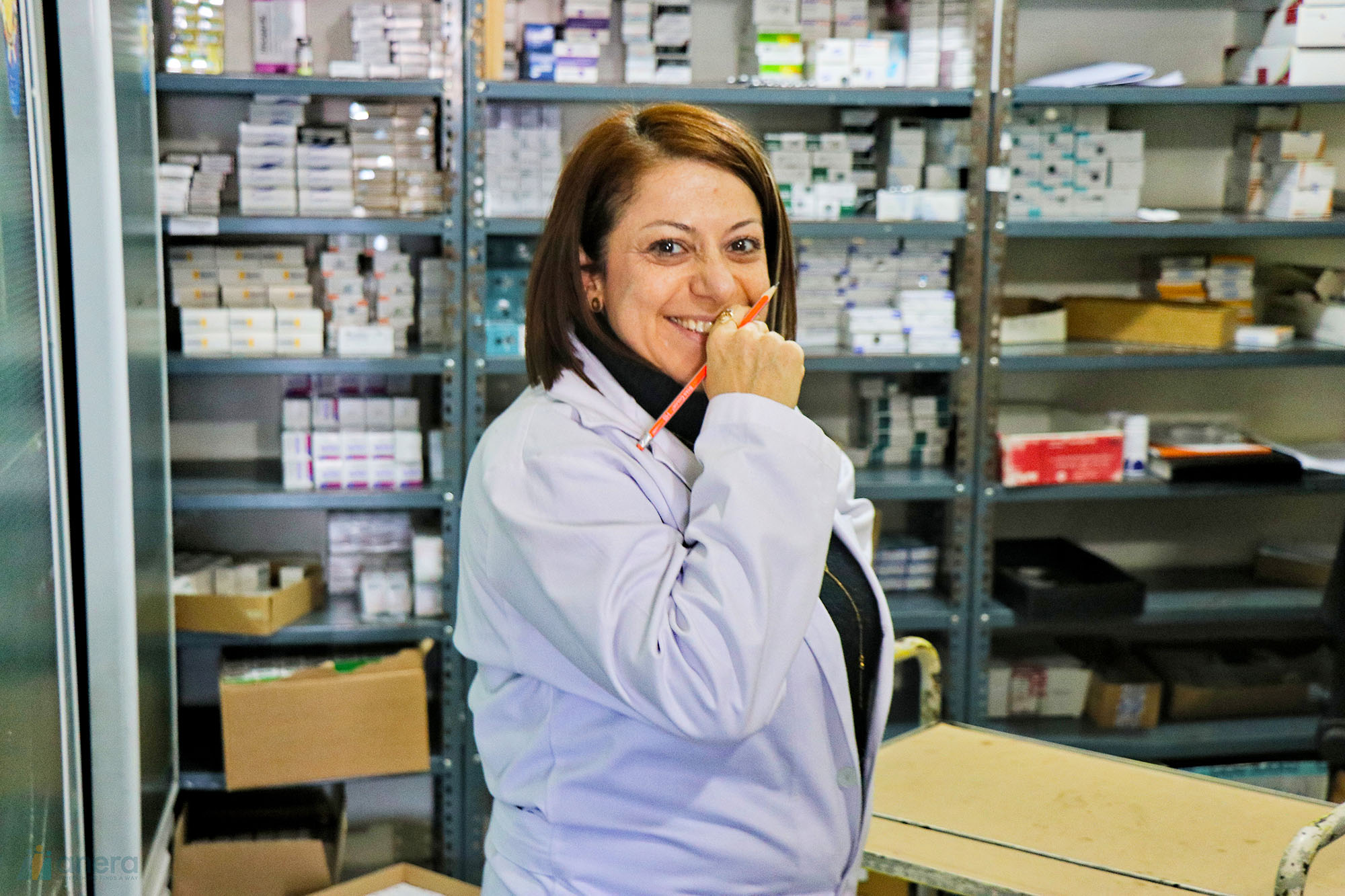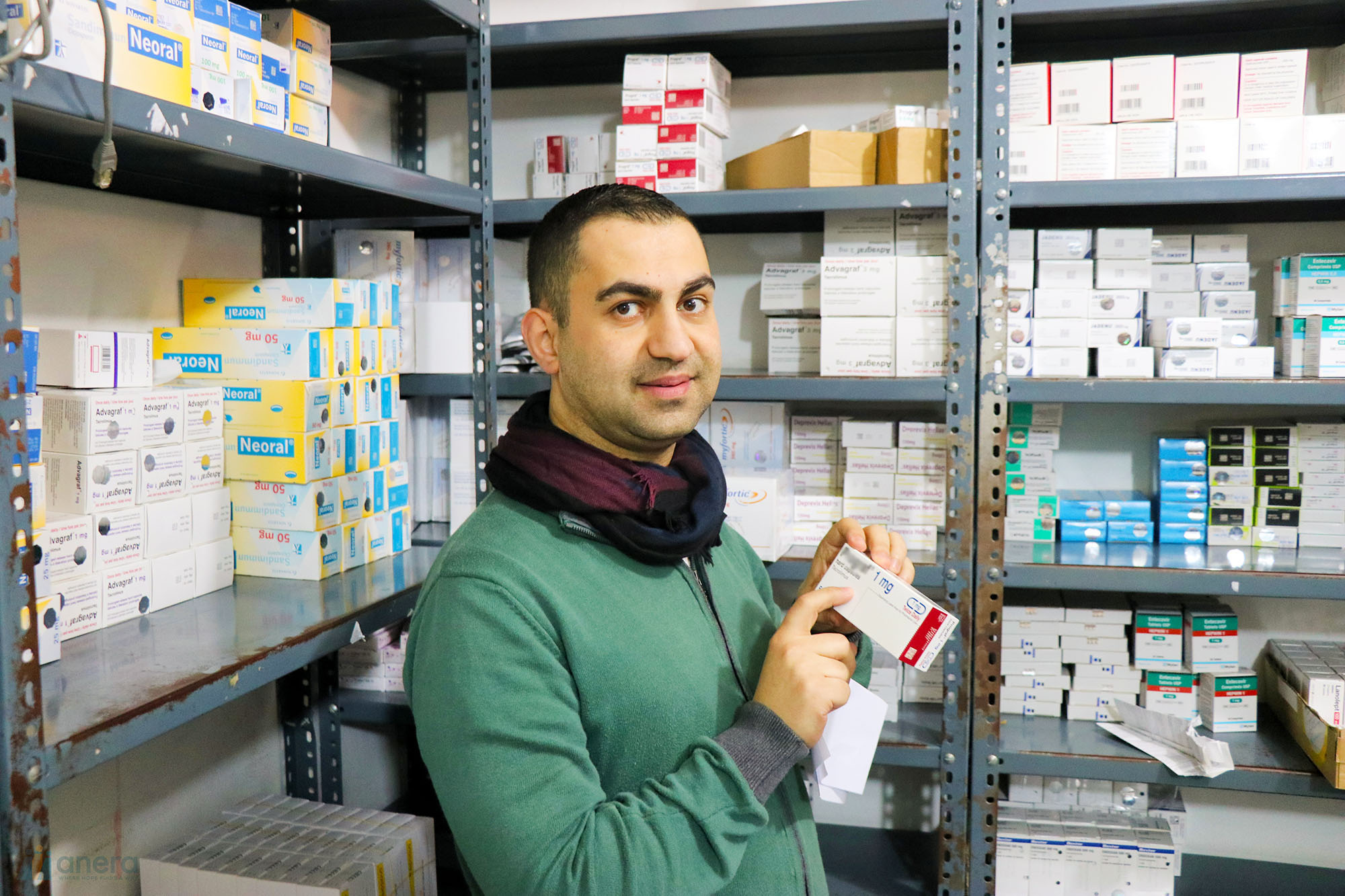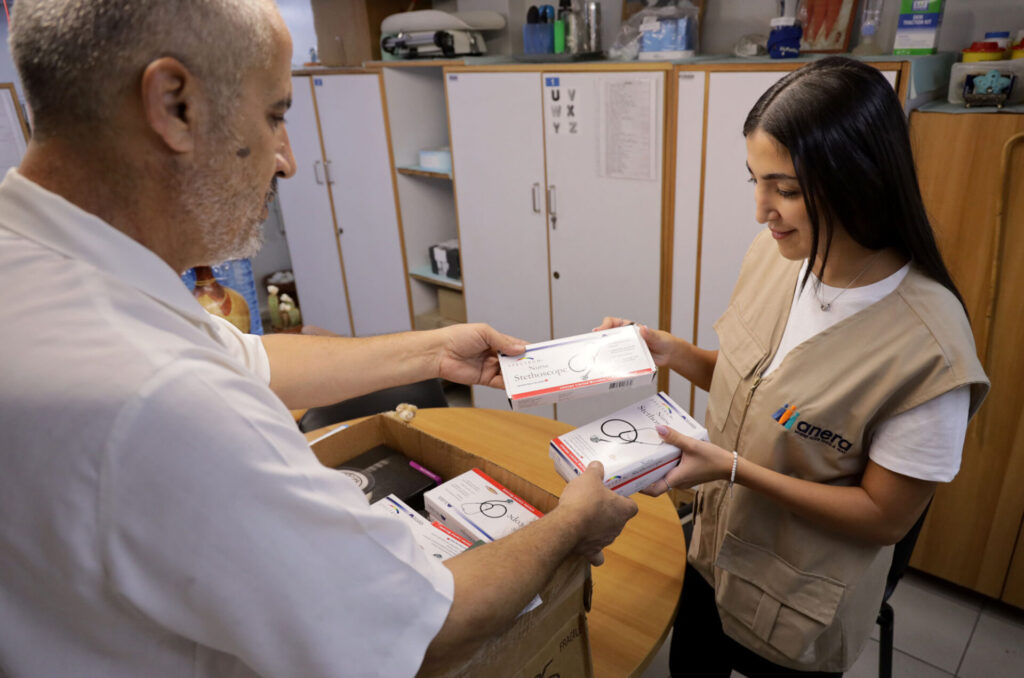Feb, 2020
Imagine living with no form of medical insurance, social security or steady income. Imagine living in an impoverished area with poor public health conditions. Now imagine you or someone in your family has a disease that can only be treated with expensive medicines that you can't begin to afford.
This is reality for thousands of vulnerable families in Lebanon who have no insurance or formal employment. Even families who might have once been able to afford medication are now forced to go without in the wake of the socioeconomic crisis.
“We live in a country where only 30 percent of the population has medical insurance. This is not okay, and it only goes to show how much help and support we need,” says Rana Chams Eddine. She is a pharmacist at a charitable pharmaceutical dispensary in Lebanon.
Anera partners with the Public Medical Dispensary for Chronic Diseases in Beirut to help ensure adequate supplies of vital medicines. The Ministry of Public Health operates the dispensary. It specializes in distributing medicines free-of-charge to vulnerable people. Some 400 to 700 people of all nationalities visit the dispensary every day.
Medicines Shortages Hitting Lebanon’s Most Vulnerable Hard
Lina Atat coordinates Anera’s donated medicines program in Lebanon. “In our latest field visit, we noticed a serious shortage of tacrolimus,” she says.
Tacrolimus is an immunosuppressive medicine that reduces the risk of organ rejection following kidney and liver transplants.
Anera’s medical program team shares a needs list collected from health care facilities across the country with our international partners. One of these valued partners is the UK-based International Health Partners, which has been supporting disadvantaged communities in Lebanon through its shipments of donated medicines.
Fortunately, International Health Partners was able to respond to our call for donated medication. “Together, we can deliver 15,000 treatments [of tacrolimus] to those in need," Lina says.
Seventy patients will be treated with this donation of tacrolimus. This medicine will give these people living with kidney or heart disease a new lease on life.
Dr. Tony Harb is a physician at the dispensary. He says,
“I met a man who has three kids — and all three suffer from thalassemia [an inherited blood disorder]. They had to be on constant dialysis. They even had a rotation [on the dialysis machine]. It was heartbreaking. Eventually the three needed transplants. Luckily, it was possible. But it is still not fair.
“It’s great that we are able to help them recover. But it is also important to raise awareness [about habits that harm kidney health and the dangers of marriage between close cousins]. Children should be able to enjoy their childhoods rather than spending it in hospitals hooked to machines.”
"This medicine is a life saver,” Elie Khawly, a pharmacist at the dispensary, says simply.
“Imagine going through the hardship of kidney disease and surgery, only to learn that your body is rejecting your new organ. This medicine directly enhances the lives of these people. Not taking it is not even an option for them.”
Public health is a core priority for Anera in Lebanon. We believe that every human being deserves a chance to live a healthy life. Thanks to the collaboration between health facilities like this dispensary that make medications available to patients at no charge, medical donors like International Health Partners and individual supporters, we are helping to ensure that thousands of at-risk people in Lebanon receive the health care that they need.



